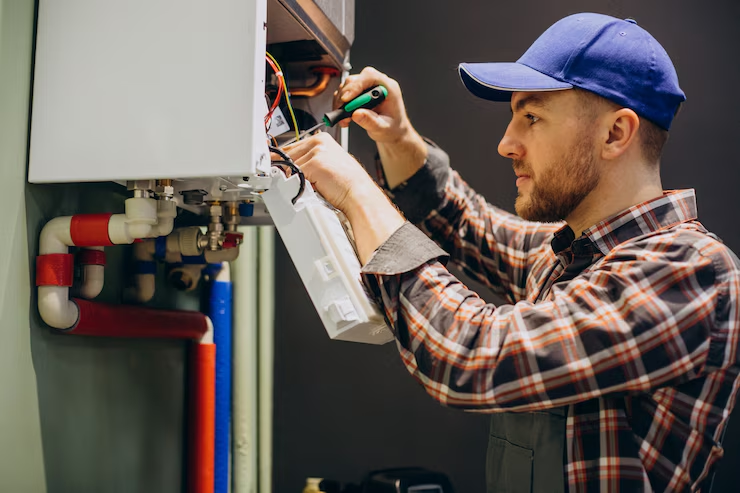Home heating oil systems are a key investment in maintaining comfortable living spaces, especially in colder climates. However, like any long-term system, they can gradually lose efficiency over time, leading to increased energy consumption, higher costs, and a growing impact on the environment. But how do you know when it’s time to invest in an upgrade or even a full replacement? Here, we’ll look at what factors to consider when evaluating your heating oil system, how to recognize signs of inefficiency, and the advantages of upgrading your system. Whether you’re a homeowner looking to cut down on heating bills or simply seeking a more environmentally friendly option, understanding these aspects can guide you toward a sound decision.
If you’re looking to explore options for fuel or service, it’s always a good idea to consult with specialists like romeosfuel.com for advice on heating oil upgrades or replacement systems.
Why Consider Upgrading Your Heating Oil System?
Heating oil systems have improved significantly over the years. New models offer better energy efficiency, enhanced safety features, and a smaller carbon footprint. Older systems, on the other hand, may not just be less efficient but also prone to breakdowns, adding repair costs and potential downtime to your heating expenses. Upgrading to a modern system can often pay off by providing you with better control over energy use, enhanced comfort, and reduced maintenance worries.
Key Benefits of Upgrading Your System
Here are some of the primary benefits you can expect when investing in a new heating oil system:
- Improved Efficiency and Lower Energy Costs: Modern heating systems convert oil to heat more efficiently, meaning you need less oil to achieve the same warmth. This can reduce monthly bills, especially during peak winter months.
- Reduced Environmental Impact: Many newer heating oil systems are designed with eco-friendliness in mind. They produce fewer emissions and operate more cleanly, making them a good choice for environmentally conscious homeowners.
- Enhanced Comfort and Control: Advanced heating systems often include features like programmable thermostats, allowing for more precise temperature control throughout the day and night. Some systems even connect with smart home devices for remote management.
- Lower Maintenance and Repair Costs: A newer system generally means fewer breakdowns, saving you from the frequent repairs that older units may require.
Signs It’s Time to Upgrade Your Heating Oil System
Knowing when to replace or upgrade your heating oil system is essential for maintaining efficiency and avoiding costly repairs. Here are some clear indicators that your system might be ready for an upgrade:
1. Increasing Energy Bills
If your heating bills have been rising without a corresponding increase in usage, your system may be losing efficiency. Older units often require more fuel to maintain the same level of heat, which can quickly drive up costs. Upgrading to a more efficient system can help bring these costs back down.
2. Frequent Repairs and Maintenance Needs
A well-functioning heating system shouldn’t need frequent repairs. If you’re constantly calling a technician to fix issues, your heating oil system may be nearing the end of its lifespan. The cumulative cost of repairs can make an upgrade the more economical choice.
3. Uneven Heating Throughout the Home
Uneven heating or "cold spots" in certain rooms could signal that your heating system is no longer operating efficiently. This might be due to outdated or malfunctioning components that no longer distribute heat evenly.
4. Visible Signs of Aging
Older systems can show visible signs of wear, such as rust on the tank or components. These signs indicate potential inefficiencies and, in some cases, can be safety hazards. Additionally, outdated systems may have issues like oil leaks, which can be dangerous and costly to repair.
5. Your System Is Over 15 Years Old
Most heating oil systems have a lifespan of 15 to 20 years. If your system is approaching or has exceeded this age, it’s likely running at a reduced efficiency and might be due for an upgrade. Technology advances mean that new systems are much more efficient than older models, so upgrading could yield significant savings.
When to Upgrade: Timing Considerations
Knowing the best time to upgrade your heating oil system can maximize both your comfort and savings. Here are some ideal moments to consider:
Off-Season Installations
If you can plan your upgrade for the spring or summer months, you’ll likely save money and have access to more flexible scheduling with technicians. Many people wait until the colder months to replace their systems, which can lead to long wait times and even higher installation costs.
After a Major Repair or Breakdown
If your system has experienced a major breakdown, it may be a good opportunity to assess whether a repair is the best solution, or if a full replacement would make more financial sense in the long run.
When Planning Energy Efficiency Upgrades
If you’re already investing in other energy-saving home upgrades—like improved insulation or new windows—consider upgrading your heating system as well. Combined, these upgrades can significantly reduce your home’s overall energy consumption.
Types of Heating Oil System Upgrades
Once you’ve decided that an upgrade is needed, the next step is understanding the different options available. The type of system you choose will affect not only your heating bills but also the comfort and environmental impact of your home.
1. High-Efficiency Oil Boilers
Modern high-efficiency oil boilers can achieve an Annual Fuel Utilization Efficiency (AFUE) rating of 90% or higher. This means they convert nearly all the fuel they use into heat, reducing waste and lowering costs. These systems also often include better insulation and condensing technology to improve efficiency.
2. Oil Furnaces with Variable Speed Blowers
Oil furnaces have also evolved, with many newer models featuring variable-speed blowers that adjust based on the home’s heating needs. This leads to better airflow, improved comfort, and reduced energy use.
3. Hybrid Heating Systems
For those seeking even greater flexibility, hybrid heating systems combine an oil system with a heat pump. This option allows homeowners to use oil heat during extremely cold temperatures but rely on the heat pump during milder conditions, reducing fuel consumption.
4. Programmable and Smart Thermostats
While not a full system upgrade, adding a programmable or smart thermostat can enhance your heating system’s efficiency. These devices let you set precise heating schedules and can be managed remotely, saving energy by only heating when and where you need it.
Cost Considerations: Balancing Initial Investment and Long-Term Savings
Upgrading your heating oil system is a significant investment, and it’s essential to understand both the immediate and long-term financial impacts. Here are some key factors to keep in mind:
Upfront Costs
The cost of a new heating oil system can vary widely, depending on the size of your home, the type of system, and any additional features. It’s generally wise to get quotes from multiple providers to find the best fit for your budget. While a high-efficiency system may have a higher initial cost, the energy savings over time often make it a worthwhile investment.
Potential Rebates and Incentives
Some regions offer rebates or tax incentives for upgrading to energy-efficient heating systems. These programs can significantly reduce the overall cost of an upgrade, so check with your local energy authority or a reliable provider like [romeosfuel.com](romeosfuel.com) to see if any are available.
Return on Investment
A more efficient heating system translates to lower monthly bills, which can offset the initial investment over time. Generally, homeowners can expect to see a return on their investment within a few years through reduced energy costs.
Environmental Benefits of Upgrading
Modern heating oil systems are not only more efficient but also more environmentally friendly. They produce fewer emissions and are often compatible with cleaner, low-sulfur heating oils. Here’s how upgrading can help the environment:
- Reduced Greenhouse Gas Emissions: High-efficiency systems consume less fuel, directly reducing carbon dioxide and other greenhouse gas emissions.
- Cleaner Combustion: Newer models tend to burn fuel more completely, minimizing the release of pollutants.
- Compatibility with Biofuels: Many modern oil systems can run on biofuels, which are made from renewable resources. Using biofuel instead of traditional oil reduces the overall environmental impact and dependence on fossil fuels.
Maintenance Tips to Extend the Life of Your System
If you’re not ready for a full upgrade, you can still take steps to keep your current system running efficiently. Regular maintenance is key to extending the life of any heating oil system:
- Annual Tune-Ups: Having a technician inspect and tune your system annually can prevent small issues from becoming costly repairs.
- Replace Filters Regularly: Clean filters ensure your system runs more smoothly and maintains optimal airflow.
- Monitor Oil Levels: Running out of oil can strain your system. Keep an eye on oil levels and refill before they get too low.
 Final Thoughts: Is It Time to Upgrade?
Final Thoughts: Is It Time to Upgrade?
A heating oil system upgrade may seem like a significant expense, but it’s an investment in your home’s comfort, your energy bills, and the environment. With benefits like lower energy costs, fewer repairs, and a smaller carbon footprint, the long-term gains often outweigh the initial expense. If you’re experiencing any of the issues mentioned above or are interested in reducing your environmental impact, it may be time to explore an upgrade. For further advice, consulting with professionals at companies like romeosfuel.com can help you make the best decision for your specific needs.
Upgrading your heating oil system is a step toward a more efficient, reliable, and eco-friendly home. So, is it time for an upgrade? The answer may be a warm "yes."

